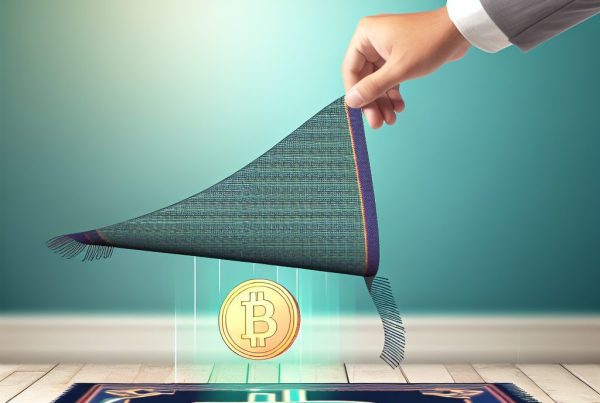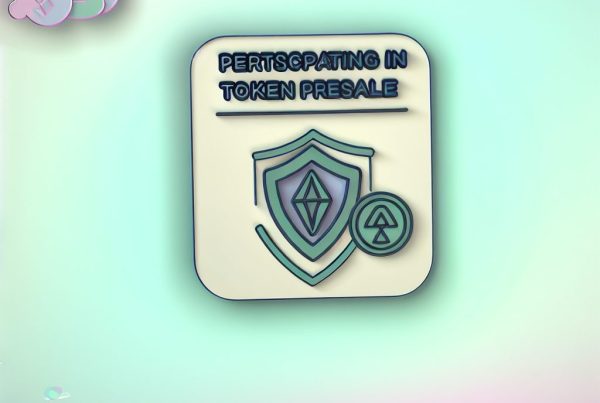Understanding the Crypto Oracle Problem
The cryptocurrency industry has witnessed remarkable growth and innovation over the past decade. However, as decentralized applications (dApps) and smart contracts become more prevalent, a significant challenge has emerged: the crypto oracle problem. This issue revolves around the need for reliable data feeds that can bridge the gap between blockchain networks and the real world. In this article, we will delve into the intricacies of the crypto oracle problem, its implications for the blockchain ecosystem, and potential solutions.
What Are Oracles?
In the context of blockchain technology, an oracle is a third-party service that provides external data to smart contracts. Smart contracts are self-executing contracts with the terms of the agreement directly written into code. They operate on blockchain networks, which are inherently isolated from external data sources. Oracles serve as a vital link, enabling smart contracts to access real-world information such as price feeds, weather data, and event outcomes.
The Importance of Oracles in Blockchain
Oracles play a crucial role in enhancing the functionality of smart contracts. Without oracles, smart contracts would be limited to the data available on the blockchain, significantly restricting their use cases. Here are some key reasons why oracles are essential:
- Access to Real-World Data: Oracles provide smart contracts with the necessary data to execute transactions based on real-world events.
- Automation: By integrating oracles, smart contracts can automate processes that require external data, reducing the need for manual intervention.
- Increased Use Cases: Oracles enable a broader range of applications, from decentralized finance (DeFi) to supply chain management and insurance.
The Crypto Oracle Problem Explained
The crypto oracle problem refers to the challenges and vulnerabilities associated with using oracles in blockchain systems. While oracles are essential for providing external data, they also introduce several risks:
- Centralization Risks: Many oracles are centralized, meaning they rely on a single source of truth. This centralization can lead to manipulation or failure of the oracle, compromising the integrity of the smart contract.
- Data Integrity: The accuracy of the data provided by oracles is critical. If an oracle delivers incorrect information, it can lead to erroneous contract execution and financial losses.
- Security Vulnerabilities: Oracles can be targets for attacks. If a malicious actor gains control over an oracle, they can manipulate the data it provides, leading to significant consequences for users relying on that data.
Types of Oracles
Understanding the different types of oracles can help clarify the crypto oracle problem. Oracles can be categorized into several types:
- Centralized Oracles: These oracles rely on a single source for data. While they are easier to implement, they pose significant risks due to their centralized nature.
- Decentralized Oracles: These oracles aggregate data from multiple sources, reducing the risk of manipulation and increasing reliability.
- Inbound Oracles: These oracles provide data from external sources to the blockchain.
- Outbound Oracles: These oracles send data from the blockchain to external systems.
- Consensus-Based Oracles: These oracles use a consensus mechanism among multiple data sources to ensure accuracy and reliability.
Real-World Implications of the Oracle Problem
The implications of the crypto oracle problem are far-reaching, affecting various sectors that utilize blockchain technology. Here are some notable examples:

Decentralized Finance (DeFi)
In the DeFi space, oracles are crucial for providing accurate price feeds for assets. For instance, if a lending platform relies on a centralized oracle for price data, it risks being manipulated, leading to unfair liquidations or incorrect interest rates. The infamous bZx incident in 2020 highlighted this risk when a centralized oracle was exploited, resulting in significant losses for users.
Insurance
In the insurance industry, smart contracts can automate claims processing based on real-world events, such as natural disasters. However, if the oracle providing weather data is compromised, it could lead to incorrect payouts or denied claims. This vulnerability underscores the need for reliable and secure oracles in insurance applications.
Supply Chain Management
Oracles can enhance transparency and traceability in supply chains by providing real-time data on product conditions and locations. However, if an oracle supplying this data is unreliable, it can lead to misinformation, affecting inventory management and customer trust.
Solutions to the Oracle Problem
Addressing the crypto oracle problem requires innovative solutions that enhance the reliability and security of oracles. Here are some potential approaches:
Decentralized Oracle Networks
Decentralized oracle networks, such as Chainlink, aim to mitigate the risks associated with centralized oracles. By aggregating data from multiple sources and using a consensus mechanism, these networks enhance data accuracy and reliability. Chainlink has become a leading solution in the DeFi space, providing secure price feeds for various protocols.
Multi-Signature Oracles
Implementing multi-signature mechanisms can enhance the security of oracles. By requiring multiple parties to validate data before it is sent to the blockchain, the risk of manipulation is significantly reduced. This approach can be particularly effective in high-stakes applications like finance and insurance.
Reputation Systems
Establishing reputation systems for oracle providers can incentivize accurate data reporting. By tracking the performance of oracles and rewarding reliable providers, users can make informed decisions about which oracles to trust.
Cross-Chain Oracles
Cross-chain oracles can facilitate data sharing between different blockchain networks, enhancing interoperability. This capability can help create a more connected ecosystem, allowing smart contracts on one blockchain to access data from another.
Future of Oracles in the Crypto Space
The future of oracles in the cryptocurrency industry looks promising as the demand for reliable data sources continues to grow. As more industries adopt blockchain technology, the need for secure and efficient oracles will become increasingly critical. Innovations in decentralized oracle networks and enhanced security measures will likely shape the landscape of oracles in the coming years.
FAQs About the Crypto Oracle Problem
What is the main challenge of using oracles in blockchain?
The main challenge is ensuring the reliability and accuracy of the data provided by oracles. Centralized oracles pose risks of manipulation, while decentralized oracles must aggregate data from multiple sources to maintain integrity.
How do decentralized oracles work?
Decentralized oracles aggregate data from various sources and use consensus mechanisms to validate the information before sending it to the blockchain. This approach reduces the risk of manipulation and enhances data reliability.
Can oracles be hacked?
Yes, oracles can be vulnerable to hacking and manipulation. If a malicious actor gains control over an oracle, they can provide false data, leading to significant consequences for users relying on that information.
What are some examples of decentralized oracle networks?
Some notable decentralized oracle networks include Chainlink, Band Protocol, and API3. These networks aim to provide secure and reliable data feeds for various blockchain applications.
Conclusion
The crypto oracle problem presents significant challenges for the blockchain ecosystem, particularly as the demand for reliable data sources grows. Understanding the importance of oracles and the risks associated with them is crucial for developers and users alike. By exploring innovative solutions such as decentralized oracle networks and multi-signature mechanisms, the industry can work towards overcoming these challenges. As the cryptocurrency landscape continues to evolve, staying informed about developments in oracle technology will be essential for anyone involved in the space.
For the latest updates on cryptocurrency news and price tracking, visit Bitrabo. Follow me on social media for more insights: X, Instagram, Facebook, Threads.
Disclaimer: This article is for informational purposes only and should not be considered financial advice. Always conduct your own research before making investment decisions.
The Crypto Watchlist of the Week 🔎
Subscribe to receive expert-curated projects with real potential—plus trends, risks, and insights that matter. Get handpicked crypto projects, deep analysis & market updates delivered to you.


